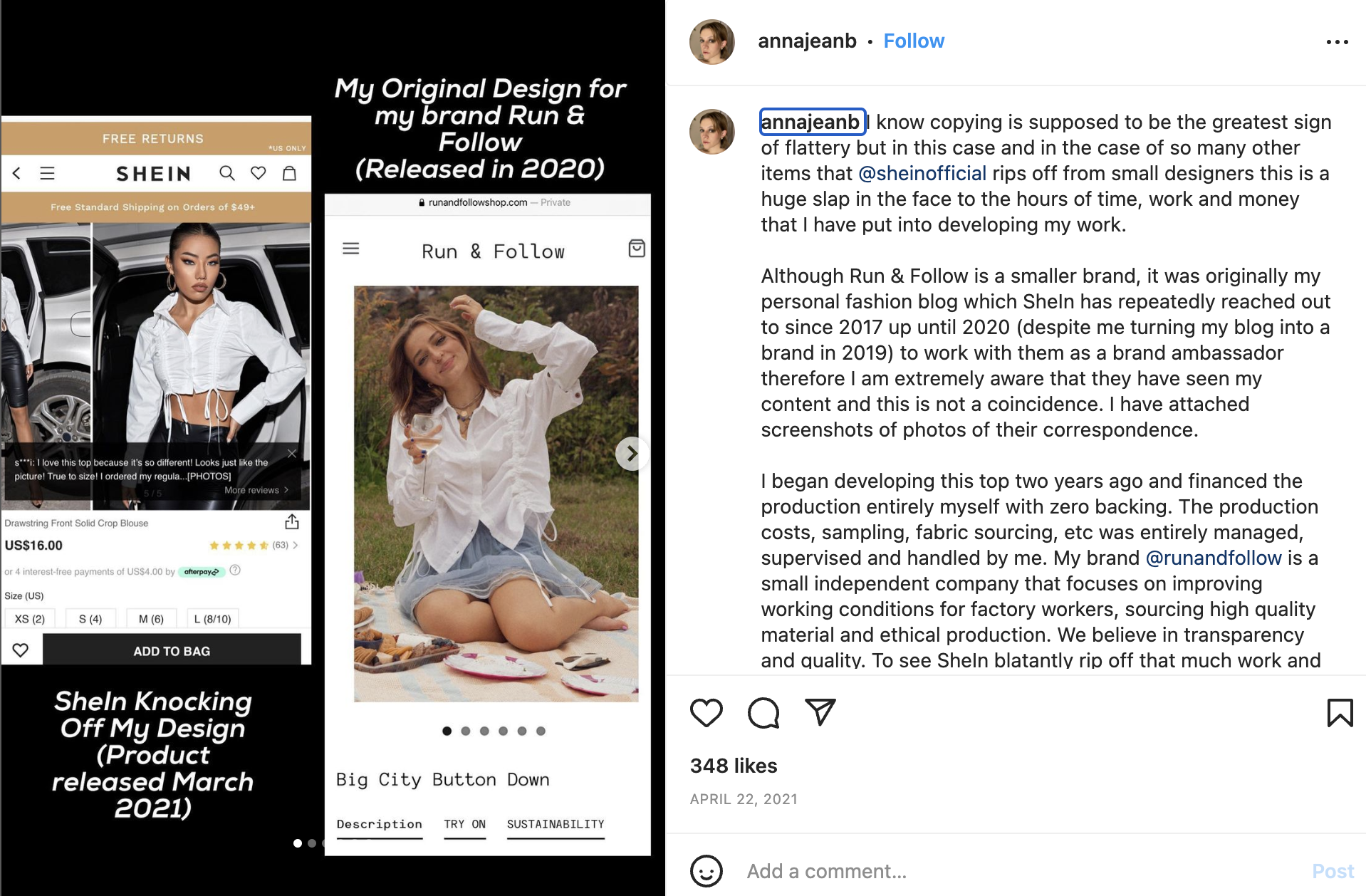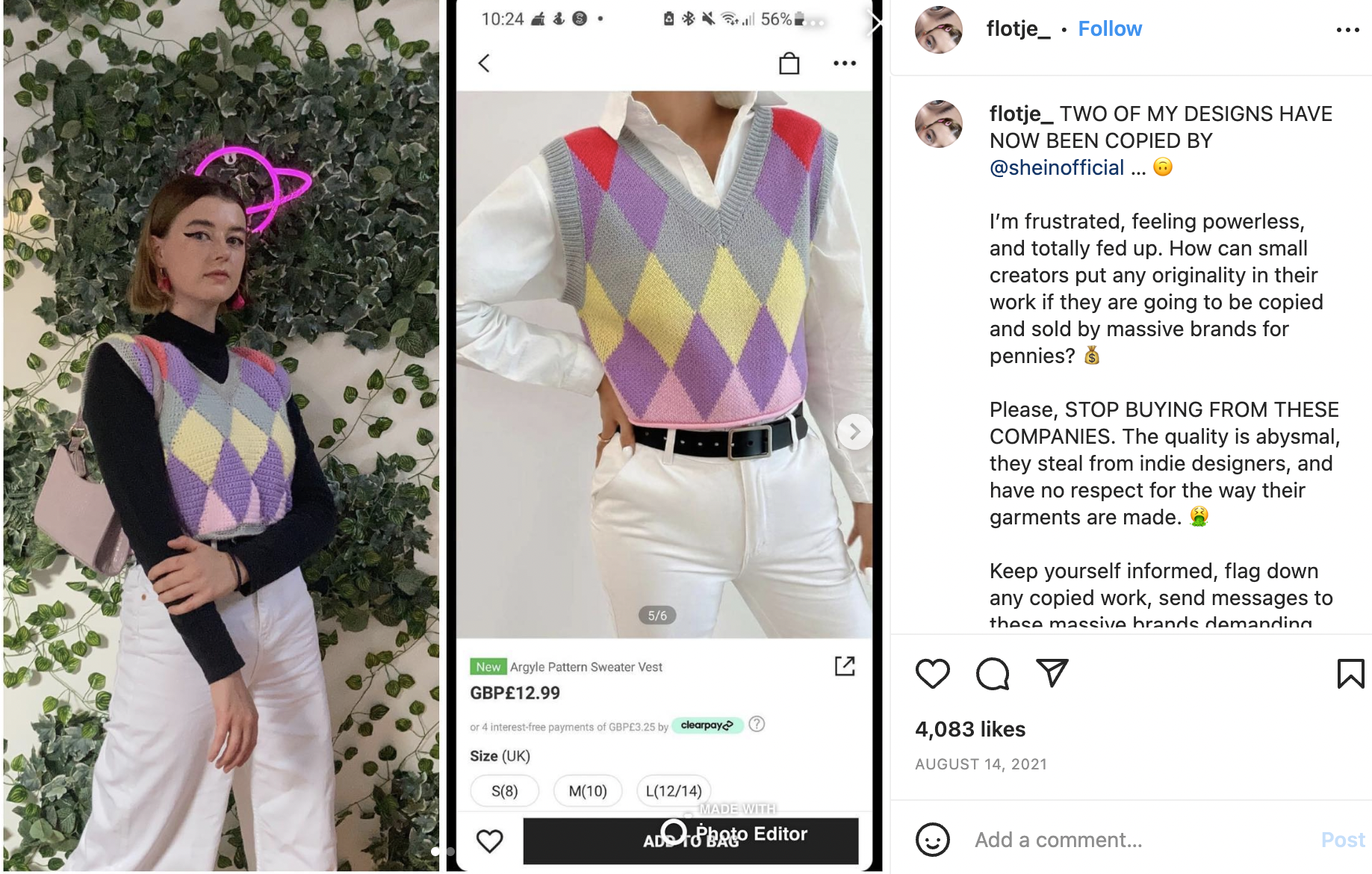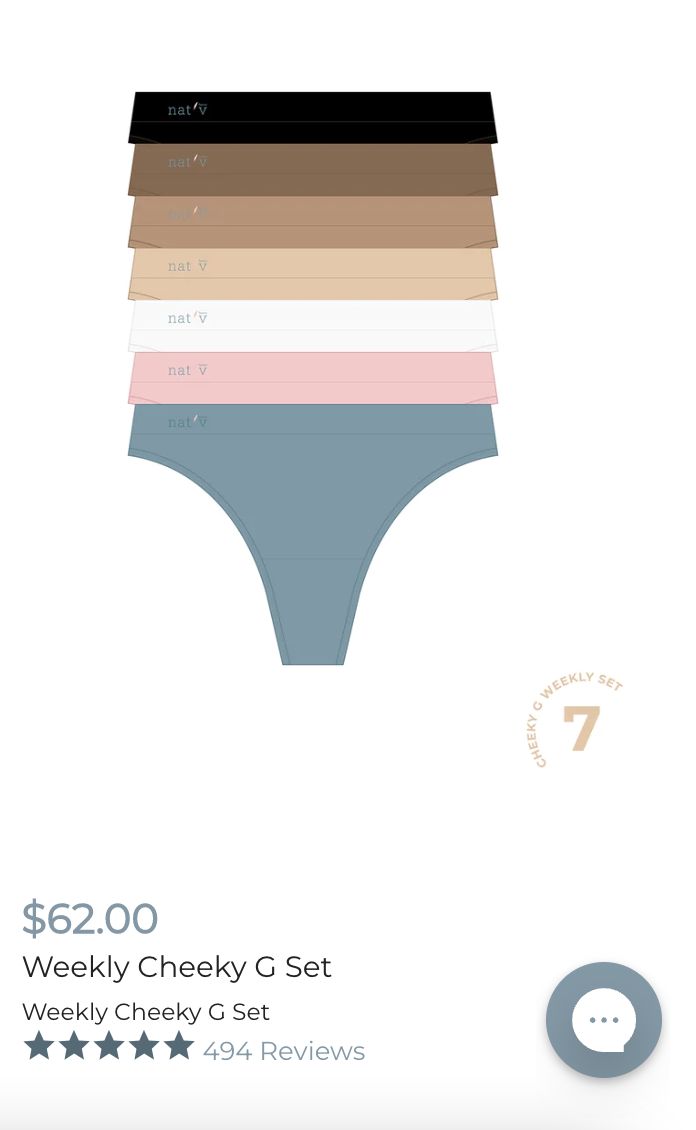Influencers are Convincing You to Destroy the Planet - Don’t Fall For It
Written by: Allegra Ravitz
Illustrated by: Cora Hochstetler
Jordan Woods, an American socialite & model, perpetuates the fast fashion culture damaging our environment with her new sexy collab with SHEIN. Why should you stop shopping at SHEIN? Why is influencer promoting a problem? Where should you shop instead?
On September 19th, 2022, Jordan Woods, a socialite and model best known for her former friendship with Kylie Jenner, announced her collaboration with SHEIN to her 12.6 million Instagram followers and 1.2 million Tik Tok followers. Jordan posted a video on her Instagram with the caption: “The secret is out! You can officially shop the #SHEINxJordynWoods collection inspired by my birthday!” On TikTok, she wrote, “Birthday week! Try on haul with pieces from my collection!”
SHEIN is best known for its next-to-nothing prices and insanely fast production allowing them to keep up with trends. The brand is a phenomenon amongst social media influencers who post their #sheinhauls and celebrities collaborating with the e-retailer. SHEIN advertises itself as “a global fashion and lifestyle e-retailer committed to making the beauty of fashion accessible to all.” Sounds great, right? SHEIN is affordable, has limitless options, and your favorite influencer buys from them. So, what could be the issue?
Influencers and celebrities who promote fast fashion brands like SHEIN have a dangerous impact on their followers. According to the 2019 Influencer Marketing Survey from Rakuten Marketing, 4 in 5 surveyed U.S. consumers (81%) have made a purchase by clicking a link or image an influencer shared. 66% trust a product recommendation as the influencer discloses their relationship with a brand. If an influencer like Jordan Woods promotes SHEIN, they are essentially promoting all the unethical and unsustainable values held by the company.
SHEIN produces an average of 6,000 products daily, roughly 2,190,000 styles annually. This number is astronomically high compared to other fast fashion brands like H&M, producing around 25,000 products a year or 35,000 from Zara. SHEIN factory employees work 16 to 18-hour days to meet the quotas of over 500 garments per day. Employees receive one day off per month. China’s labor laws state that workers must receive one day off per week, are allowed to clock in a maximum of 40 hours per week, and overtime cannot exceed 36 hours per month, which SHEIN employees easily surpass. Paid less than $20 a week, employees also receive penalties on their daily wage if there is a detectable mistake on the garment.
In searching for answers as to why people still shop at such a despicable company, I asked 13 people across different schools and majors why they buy from SHEIN. A student at Unity College said, “The prices and great quality of their products.” This student was not the only one with this reasoning. 72% of those who answered stated that price was the main reason for buying items from SHEIN, 27% said availability of options, and 27% said style. As college students, price is a determining factor in our buying habits. The astonishing low prices of SHEIN are inviting, but what is the actual cost?
Good on You, a website that rates brands on important social and environmental issues, ranks SHEIN as the lowest on their scale. They claim that SHEIN is “taking adequate steps to ensure payment of a living wage for its workers.” But also states, “there is no evidence that [SHEIN] has taken meaningful action to reduce or eliminate hazardous chemicals. There is no evidence SHEIN has the policy to minimize the impacts of microplastics.” This raises some serious concerns for a company that produces this many products.
A CBC Marketplace investigation discovered that many of the products retailed by SHEIN are dangerous. Out of 38 samples, one in five items had elevated levels of chemicals - including lead, PFAS, and phthalates - that experts found extremely concerning. How is this even legal for SHEIN to do this?
All the things SHEIN should be doing, paying a living wage, not endangering workers or customers with chemicals, etc. seem like common sense - yet the company makes no efforts to change its ways. When asked about her thoughts on the company Amy Krimm, a senior at The University of Pennsylvania, said, “I think it is a terrible company that is a result of increasing overconsumption under capitalism. It’s a tragic example of the invisible consequences of seemingly small actions.” All the little things, the low prices, the horrific working conditions, and the hazardous chemicals used on their own are already awful but all together deplorable.
Unfortunately, the issues with SHEIN do not stop there. Designers and customers often ridiculed the brand for retailing unoriginal designs. In 2018 Levi Strauss accused SHEIN of copying a trademarked stichting pattern. Three years later in 2021, AirWar International (the company that produces Dr. Martens) filed a lawsuit against SHEIN for infringing IP. Ralph Lauren also sued SHEIN’s parent company (Zoetop Business Co.) for using an image that was almost an exact look-alike to its signature polo player logo. And it does not stop there for SHEIN. They have also ripped off designs from small businesses like Transformations by Tracy, Run & Follow, and designs by Florentine Röell.
Tracy Garcia, a graduate of The Fashion Institute of Technology (FIT) and the designer behind Transformations by Tracy, discovered SHEIN ripped off her sustainably created silk cami blouses in November of 2021.
Tracy received a DM on Instagram from one of her followers that included a link to SHEIN’s website. She said, “when I clicked it, I could believe what I was seeing – an exact replica of my design.” Aside from the obvious disappointment of seeing her design on SHEIN’s website without her permission, Garcia was also unhappy with their lack of effort in sustainability. After Garcia graduated from FIT, sustainability became a priority for her brand. Her silk camis are handmade, made to order, 100% silk, and she uses natural dyes to color the lace. SHEIN rendition of the silk cami was made from polyester, a synthetic fabric.
Anne Jean (AJ) faced similar issues with her brand Run & Follow. SHEIN created three variations of her Big City Button Down ranging from $6-$16, the original retails for $145.
AJ said, “A lot of people tried to invalidate me and I saw people claim that my design was also unoriginal, but I developed this two years ago and spent hours researching it to make sure it was an original design.”
Florentine Röell started crocheting garments to relax. Her designs are feminine, comfy, and unique – a representation of the joy crocheting brought to her life. After discovering SHEIN stole two of her designs – one of which Röell hadn’t had a chance to produce and sell herself, she had to take a break.
She said “I actually had to take a break... I’m not sure if I’ll ever start [my business] back up again & a very big part of that is what happened with SHEIN.” It is upsetting to hear that such a well know retailer can steal designs not only from big-name retailers but it makes matter worse they have no problem stealing from small times designers.
Shoppers also spotted the e-retailer selling a necklace with a swastika charm and noticed that the website had Muslim prayer mats available. However, SHEIN referred to them as decorative rugs. These two products on SHEIN’s websites are blatant examples of Islamophobia and Antisemitism.
If you shop at SHEIN, you are probably wondering - where should I be shopping instead? Where can I buy products that are on trend, are price-conscious, will not harm the planet, and will pay workers a living wage? Look to Honest Basics, Nat’v Basics, Yes Friends, and Mighty Good Basics as a starting point. Stop blindly trusting your favorite influencer! Do your research, start paying attention to retailers’ values, ethics, and sustainability efforts, and see how they compare to yours.
Honest Basics is a GOTS (Global Organic Textile Standard) certified basics brand founded in Germany. They want to make sustainable fashion accessible to everyone by keeping prices low and are constantly improving the sustainability of their products and the supply chain.
Certifications: all products and factories are GOTS-certified
Good for: basics, casuals, minimalistic
Prices range from $12 to $54
Nat’v Basics is an eco-friendly everyday underwear label designed for women, and they make basics that are better for bodies and the planet. “We designed our undies to make sure your tooshie and your conscience can kick back and relax. No grubby supply chains, no toxins, and certainly no wedgies here, thank you very much.”
Certifications: FSC Certified, PEFC Certified, Oeko-Tex Standard 100 Certified
Good for: underwear, undergarments, bras
Prices range from $9 to $119
Yes, Friends creates sustainable, ethical, and affordable clothing for everyone. They work with manufacturers around the world to make their clothes. Yes, Friends even uses solvent-free water-based inks for screen printing, GOTS-certified plastic-free embroidery, and GOTS-certified ink for direct-to-garment printing to create custom-printed clothing!
Certifications: Fairtrade Cotton, Global Organic Textile Standard, Business Social Compliance Initiative (BSCI), PETA-approved Vegan, Fair Wear Foundation
Good for: hoodies, basics, denim
Prices range from $10 to $60
Mighty Good Basics is a certified Fairtrade and organic premium basics brand for men and women. They support small-scale organic and Fairtrade cotton farmers who provide their members with technical, agricultural, economic, and marketing support. Mighty Good Basics hope to improve sustainability in farming and increase profitability for farmers.
Certifications: GOTS-certified dyes, fairtrade certified
Good for: Underwear, tanks, undergarments, basics
Prices range from $15 to $35




















